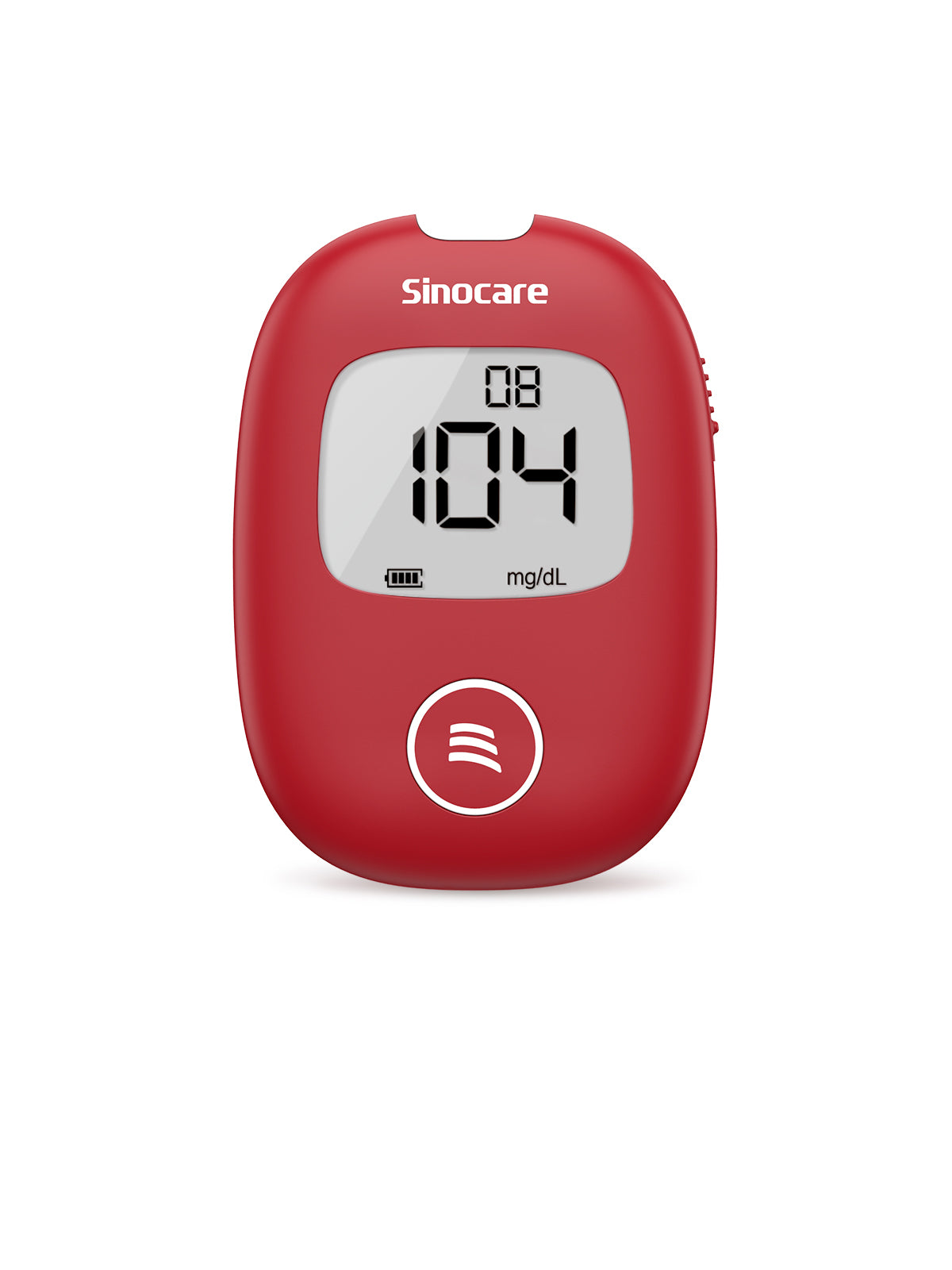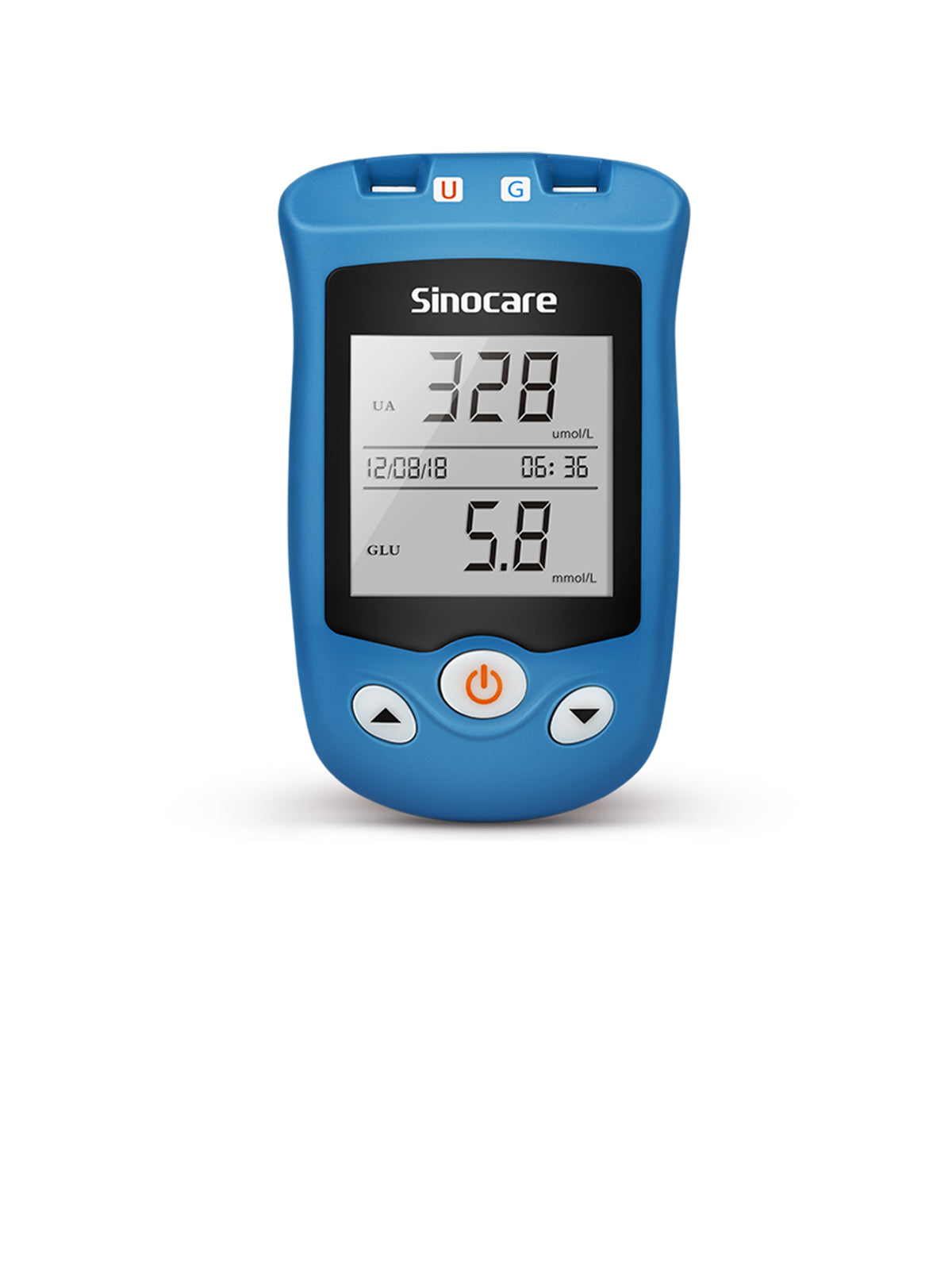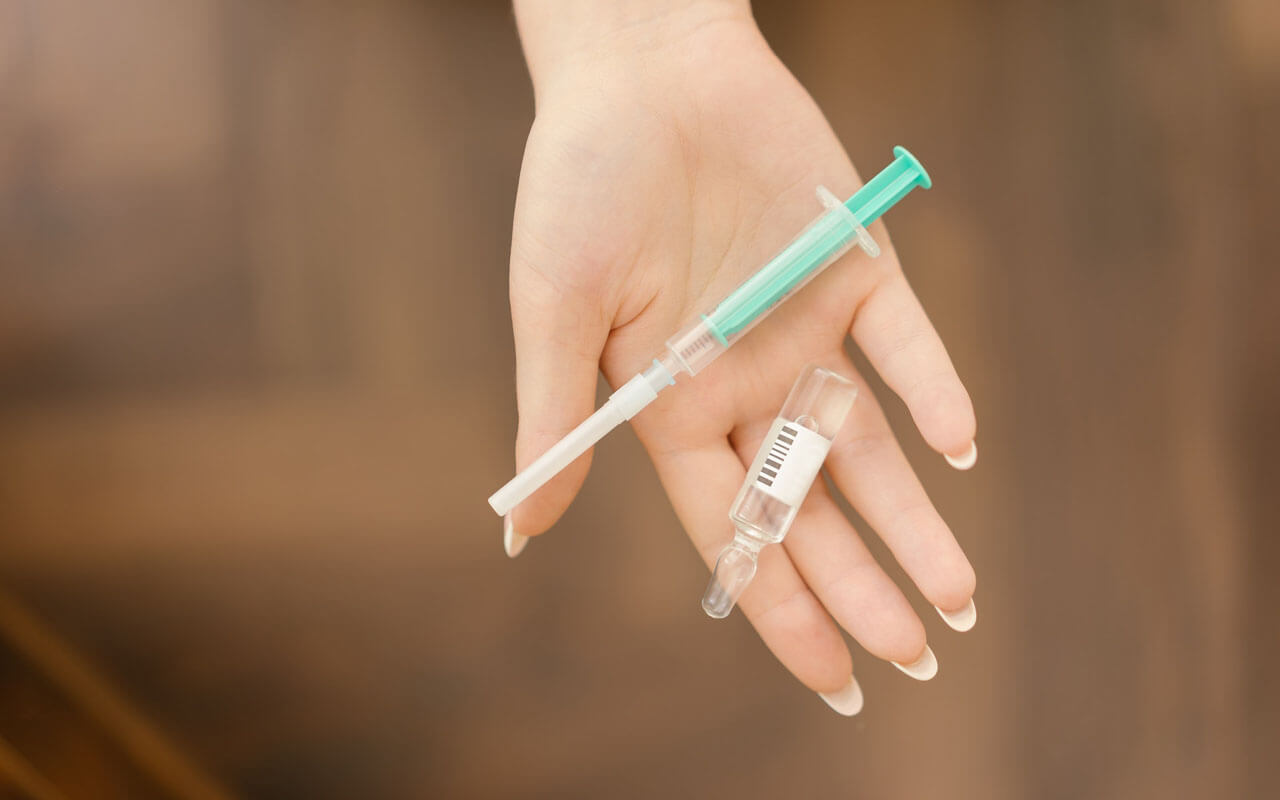Imagine returning home from work to discover your diabetic grandfather unconscious in his bed, with an empty vial of insulin by his side. Frozen with fear, you dial emergency services, with a swarm of questions racing through your mind: Did he take too much insulin? What occurs in the event of an insulin overdose? What should I do to help him?
Before the anxiety kicks in, let's explore the effects of an insulin overdose. Drawing from scientific research, we will shed light on insulin action and its impact on those with or without diabetes and the implications of a possible overdose.
Types of Insulin
In order to comprehend how insulin will affect an individual, it is essential to distinguish between its different types. All insulin types regulate carbohydrate and fat metabolism but differ in their action time frame. Let's delve into the most commonly used types in more detail:

Figure 1: Most common insulin types differ regarding the time frame of their action. [1][2][3]
There are three more types of insulin that are less commonly used: ultra-long-acting, premixed, and inhaled insulin.
Ultra Long-acting insulin takes up to six hours to enter your bloodstream and has no peak. It can remain active in your body for over thirty-six hours. Glargine U-300, also known as Toujeo, is an example of this type. [4]
If you struggle with extracting insulin from multiple bottles or have difficulty accurately reading directions and dosages, your doctor may have prescribed you Premixed Insulin. This type is especially useful if you have vision issues or face attention challenges. [5]
In 2015, a significant stride forward in medicine was made with the introduction of Afrezza, an inhaled type of insulin. [6] With its fast-acting properties, Afrezza starts to work within twelve to fifteen minutes and reaches its peak efficacy in just thirty minutes. It completes its course in one hundred and eighty minutes, making it a highly efficient product. This innovation in medicine has paved the way for more research and development, and we can expect to see even more exciting advancements in the future. [6]
Symptoms of an Insulin Overdose
If you suspect a possibility of an insulin overdose, recognizing the early signs of hypoglycemia – a condition where the levels of sugar in the blood are unusually low – is crucial. By acting promptly upon noticing these symptoms, you can reduce the risk of severe complications and ensure timely intervention. [7]
Here's a guide for you to understand and identify the symptoms of an insulin overdose:
Mild Symptoms:
- Trembling: This can often be accompanied by nervousness or anxiety. [8]
- Sweating: Especially noticeable around your neck or forehead. [8]
- Heart pounding or racing. [8]
- Cravings: Strong food desire, particularly sweet treats. [8]
Moderate Symptoms:
- Dizziness or Light-headedness [8]
- Mild to severe headache. [8]
- Irritability: unexplained mood swings or emotional outbursts. [8]
- Difficulties focusing. [7]
Severe Symptoms:
- Disorientation: It can become difficult to recognize familiar people or places. [7]
- Mumbling or unclear speech. [7]
- Coordination issues: Clumsiness or difficulties with motor tasks. [7]
- Vision Problems: Blurry or double vision. [7]
Critical Symptoms:
- Seizures: convulsions or uncontrolled shaking. [9]
- Unconsciousness.
- Coma: This is the most severe form of unconsciousness where there's no response to external stimuli. [9]
You should act immediately when you notice the first signs of hypoglycemia. Start with fast-acting carbs like candy or fruit juice and seek emergency medical attention if they persist. [10]
Will Insulin Kill a (Non-diabetic) Person?
Both diabetics and non-diabetics can die from excessive insulin. According to a study published in the Journal of Medical Case Reports, there have been cases where individuals who do not have diabetes experienced dangerously low blood sugar levels after being exposed to insulin.
Therefore, it is crucial to handle and store insulin with care, particularly in households where there are curious children or members who may not be aware of its potential dangers. [11]
Elderly individuals with dementia are also at serious risk of accidental insulin overdose. To prevent unintentional accidents, make sure to assist them with their insulin use. It's heartening to remember that while medications have powerful effects, they should always be handled with awareness and respect.
Tips for Insulin Use
We have compiled some essential guidelines to ensure safe insulin use for you or your loved ones.
The first and most important rule is to always consult a healthcare professional before making any adjustments to your insulin regimen. [10] With that being said, it's important to keep a few more things in mind:
- Rotate your injection sites to help prevent skin issues. [12]
- Keep your insulin stored properly, away from extreme temperatures. [12]
- Be mindful of expiry dates because insulin can lose potency over time. [12]
- Ensure there are no air bubbles in the syringe before you administer insulin. [12]
- Ask your doctor or pharmacist about the characteristics of your insulin type to understand its action and know when to expect its effects to kick in. [10]
- Keep track of your blood glucose levels. [10]
It is crucial to stay informed and vigilant about safe insulin usage, as it is a cornerstone of successful diabetes management.
FAQ
Can I use insulin to lose weight?
No, using insulin purely for weight loss can be dangerous and is not recommended. There's a common misconception that insulin can be used as a weight loss tool because some people might lose weight when they first start insulin therapy.
However, this weight loss is typically a result of better diabetes control and the body using glucose more efficiently. [13] Additionally, long-term use of insulin without a medical need might actually lead to weight gain. [13]
Can an insulin overdose cause a heart attack?
An insulin overdose primarily causes low blood sugar or hypoglycemia, which can lead to unconsciousness, seizures, and, in extreme cases, death. [14] While severe hypoglycemia might increase the risk of cardiovascular events, a direct cause-and-effect relationship between insulin overdose and heart attacks hasn't been definitively established. [15]
How long does an insulin overdose last?
The duration of an insulin overdose varies depending on the type and amount of insulin used. As explored above, rapid-acting and long-acting types have different action timeframes, which can range from minutes to hours. [10]
Does diabetes make a person depressed (which may cause an overdose of insulin)?
If you or your loved one is living with diabetes, you know how emotionally overwhelming it can be. The daily responsibility of managing your blood glucose levels, taking medications, and dealing with potential complications can sometimes take its toll.
Multiple studies have indicated that people with diabetes have an increased risk of developing depression. According to a study published in the journal Diabetes Care, individuals with diabetes are about twice as likely to experience depression compared to those without diabetes. The reasons behind this association are multifaceted, encompassing physiological and psychological factors. [16]
From a physiological standpoint, fluctuations in blood sugar levels can affect the mood. High or low blood sugar can lead to symptoms like irritability, anxiety, and fatigue, which could, over time, contribute to depression. [16]
Additionally, some diabetes-related complications, such as neuropathy or vision problems, can limit a person's activities or independence, leading to feelings of sadness or hopelessness. [16]
From a psychological viewpoint, the constant vigilance required to manage diabetes can be stressful. Concerns about potential long-term complications, the financial burden of treatment, or simply the feeling of being different can weigh heavily on an individual's mind. [16]
Remember that addressing your emotional well-being is as crucial as managing physical health. Finding a listening ear, patience, and understanding can make a world of difference.
Final Thoughts
Insulin has greatly improved the lives of many patients around the world. However, managing diabetes requires one to use it with caution and respect. If you have any concerns or questions about insulin or its effects, it is best to consult with your healthcare provider.
It is also important to keep in mind that mental and physical health go hand in hand. Therefore, always prioritize your mental well-being and seek out support and resources when feeling overwhelmed.
References
- Home PD. The pharmacokinetics and pharmacodynamics of rapid-acting insulin analogues and their clinical consequences. Diabetes Obes Metab. 2012;14(9):780-788. doi:10.1111/j.1463-1326.2012.01580.x
- Long-Acting Insulin: How It Works. Healthline. Published October 23, 2015. Accessed September 10, 2023. https://www.healthline.com/health/diabetes/long-acting-insulin
- Insulin Basics | ADA. Accessed September 10, 2023. https://diabetes.org/healthy-living/medication-treatments/insulin-other-injectables/insulin-basics
- New insulin glargine 300 Units · mL-1 provides a more even activity profile and prolonged glycemic control at steady state compared with insulin glargine 100 Units · mL-1 - PubMed. Accessed September 10, 2023. https://pubmed.ncbi.nlm.nih.gov/25150159/
- Evolution of insulin development: focus on key parameters - PubMed. Accessed September 10, 2023. https://pubmed.ncbi.nlm.nih.gov/22843207/
- [Inhaled insulin, new perspective for insulin therapy] - PubMed. Accessed September 10, 2023. https://pubmed.ncbi.nlm.nih.gov/16035294/
- Hypoglycemia and diabetes: a report of a workgroup of the American Diabetes Association and the Endocrine Society - PubMed. Accessed September 10, 2023. https://pubmed.ncbi.nlm.nih.gov/23589542/
- Hypoglycemia: still the limiting factor in the glycemic management of diabetes - PubMed. Accessed September 10, 2023. https://pubmed.ncbi.nlm.nih.gov/18996798/
- The role of glimepiride in the effective management of Type 2 diabetes - PubMed. Accessed September 10, 2023. https://pubmed.ncbi.nlm.nih.gov/15531188/
- 6. Glycemic Targets: Standards of Medical Care in Diabetes—2020 | Diabetes Care | American Diabetes Association. Accessed September 10, 2023. https://diabetesjournals.org/care/article/43/Supplement_1/S66/30598/6-Glycemic-Targets-Standards-of-Medical-Care-in
- Accidental insulin overdose - PubMed. Accessed September 11, 2023. https://pubmed.ncbi.nlm.nih.gov/15461121/
- Insulin Absorption from Lipodystrophic Areas: A (Neglected) Source of Trouble for Insulin Therapy? - PMC. Accessed September 10, 2023. https://www.ncbi.nlm.nih.gov/pmc/articles/PMC2901055/
- Russell-Jones D, Khan R. Insulin-associated weight gain in diabetes--causes, effects and coping strategies. Diabetes Obes Metab. 2007;9(6):799-812. doi:10.1111/j.1463-1326.2006.00686.x
- Choudhary P, Rickels MR, Senior PA, et al. Evidence-informed clinical practice recommendations for treatment of type 1 diabetes complicated by problematic hypoglycemia. Diabetes Care. 2015;38(6):1016-1029. doi:10.2337/dc15-0090
- Association of depression and diabetes complications: a meta-analysis - PubMed. Accessed September 10, 2023. https://pubmed.ncbi.nlm.nih.gov/11485116/
- Anderson RJ, Freedland KE, Clouse RE, Lustman PJ. The prevalence of comorbid depression in adults with diabetes: a meta-analysis. Diabetes Care. 2001;24(6):1069-1078. doi:10.2337/diacare.24.6.1069










Leave a comment
All comments are moderated before being published.
This site is protected by hCaptcha and the hCaptcha Privacy Policy and Terms of Service apply.